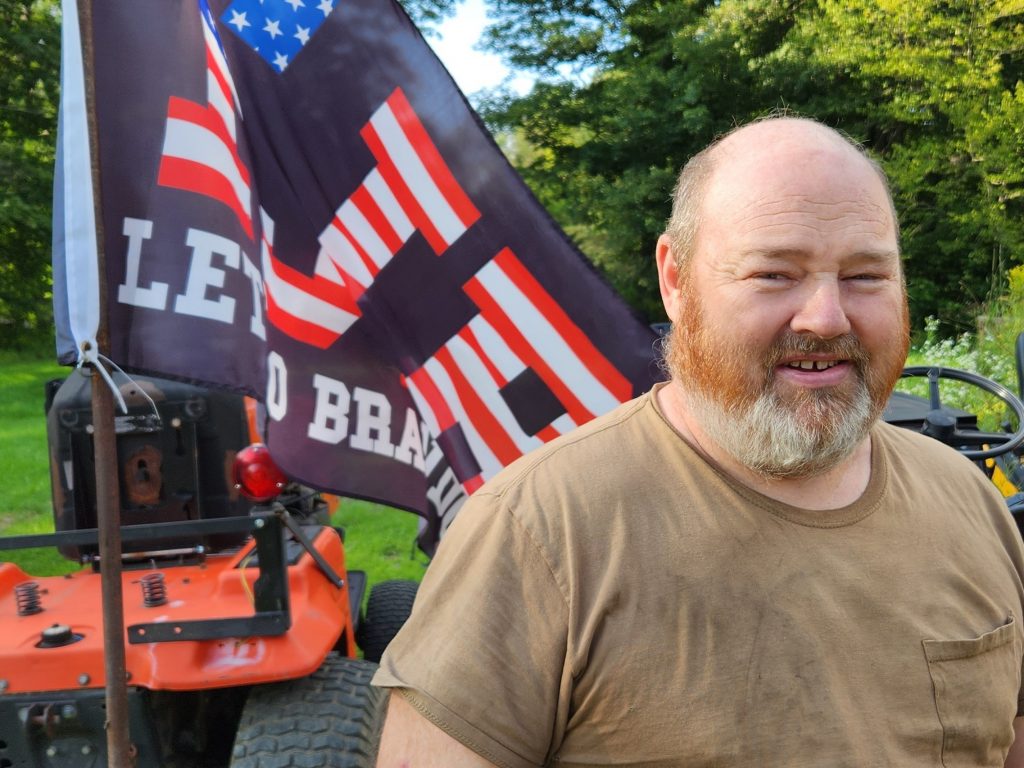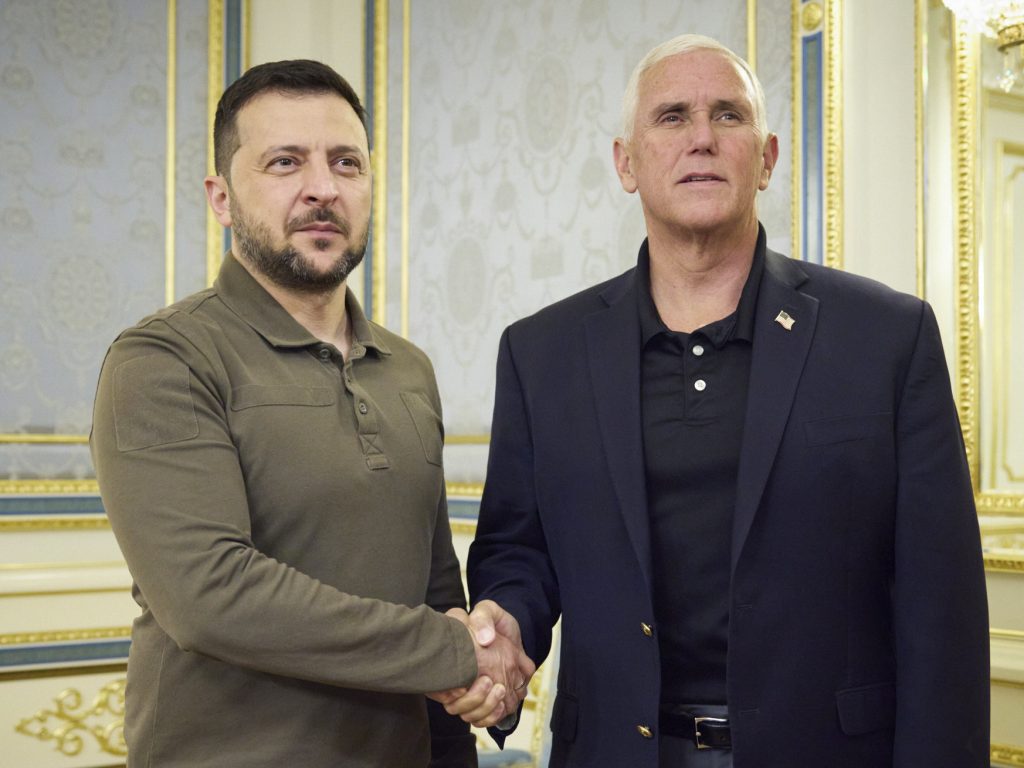News
Rural voters shaping the GOP presidential turn against U.S. aid to Ukraine
By: Brian Mann | NPR
Posted on:
WASHINGTON (NPR) — A growing number of conservative Americans — especially those in rural communities — say it’s time for military and financial aid to Ukraine to end.
U.S. support for the country totals more than $100 billion so far and is a lifeline for the embattled country after Russia’s brutal invasion last year.
“I think they ought to spend a lot more money at home and take care of our own people,” said Steven Whitley, a GOP voter in Tupper Lake, a small town in northern New York.
Whitley told NPR the U.S. has no business intervening in a conflict on the opposite side of the world. He rejected the idea Ukraine is a democracy and an ally worth protecting. Leaders in both Ukraine and Russia, he believes, are corrupt.
“They’re both kind of bad people. You know what I mean? Let them take care of it,” Whitley said.
Overall, polls show American support for financial aid and weapons for Ukraine remains strong. But surveys conducted over the past year show a major shift among Republicans.
A Pew survey in May 2022 found only 17% of GOP voters thought the Biden administration was doing too much to help Ukraine. But a CNN poll released this month found 76% of self-described conservatives now oppose further aid.
“Surveys have confirmed waning Republican support,” said William Galston, a senior fellow at the Brookings Institution, who has studied the trend. “I think the facts are undeniable.”
He says populism and isolationism are changing how many GOP voters see the world.
“Many Republicans are skeptical of the forward-leaning role in the world that we played since the end of the Second World War,” Galston said.
In small towns from Florida to Vermont to Wyoming, a shift toward conservative isolationism

“I don’t think they should be spending 30, 40, 50 billion dollars over there,” said Michael Wetter, who lives in Stuart, Florida.
Like many of the the people interviewed, Wetter said he gets his information from Fox News and other right-wing sources that regularly air views — including conspiracy theories and disinformation — critical of Ukraine.
“I’ve seen in alternative news sources that Ukraine was housing a bunch of biological weapons factories,” Wetter said, echoing a debunked claim made by Russia that gained wide currency in far-right American media.
Mainstream media coverage of the war in the U.S. has been largely favorable to Ukraine, accurately portraying the brutality of Russia’s invasion and Moscow’s well-documented war crimes.
But some of the most influential media voices on the right, including former Fox News host Tucker Carlson, have painted a far more sinister portrait of Ukraine, describing it as a corrupt society hostile to Christian values.
Carlson has frequently described U.S. aid to Ukraine as a scam, backed by a “propaganda campaign designed to convince Americans to take sides in this conflict, a conflict that has strictly speaking nothing to do with them.”
Conservative voters interviewed by NPR also referenced arguments made by Congresswoman Marjorie Taylor Greene.
The high-profile populist has called for an end to Ukraine funding and condemned the Biden administration for drawing the U.S. into “a proxy war with Russia that we cannot afford.”
Ukraine skeptics are dominating the GOP presidential primary
Donald Trump — the frontrunner in the GOP presidential primary— is America’s most high-profile Ukraine aid skeptic.
Appearing on Fox News, Trump promised to force a swift end to the conflict, saying he would tell Zelenskyy “you got to settle.”
Most experts say pressuring Ukraine to accept major territorial concessions would give Russia a big win and likely would not lead to a long-term peace.
But many rural GOP voters told NPR they believe Trump could end the conflict quickly without spending more U.S. dollars.

Batchelder said the right-wing media sources he trusts, including Fox News, convinced him Ukrainian President Volodymyr Zelenskyy is corrupt and likely stealing a lot of U.S. aid.
“He’s gotten tons of money from us and he’s not a good person,” Batchelder said. “[He’s] just like any other dictator from a social-communist country.”
In fact, Ukraine is not a socialist or a communist country and Zelenskyy is not a dictator.
Some Republicans in Congress and candidates in the GOP presidential primary have tried to push back against false narratives and growing anti-Ukraine sentiment, but the response among voters has appeared tepid.
During a campaign appearance in Iowa last month, former Vice President Mike Pence delivered what was meant to be an applause line on Ukraine.
“A year and a half ago, Russia had the second most powerful military in the world. Today they have the second most powerful military in Ukraine.”
Met with silence followed by a light smattering of polite applause, Pence added, “All right? That’s progress.”

“It’s unfortunate the two leading Republican nominees for President, Donald Trump and Ron DeSantis, their policy on Ukraine is wrong,” Hurd said.
“Somebody very skeptical of helping Ukraine could get the nomination”
Some Republican voters, obviously, do still support strong aid to Ukraine.
“Putin is a dictator like Hitler and he’s never going to quit,” said Tyler Wilson, a ranch-worker in Boulder, Wyoming, who wants the Biden administration to do more to help the Ukrainians.
“They’re just citizens like us, kids and babies and stuff getting murdered and that’s not right,” Wilson said.
But the three most outspoken pro-Ukraine candidates seeking the GOP presidential nomination — Hurd, Pence and former New Jersey Gov. Chris Christie — are all polling in the low single digits.
Clifford Smith, a conservative foreign policy expert who’s written about the Republican shift against supporting Ukraine, said the trend may be irreversible.
“It’s certainly possible somebody very skeptical of helping Ukraine could get the nomination and that could be a disaster,” he said.
Smith agrees conservative disillusionment with the outcome of costly wars in Afghanistan and Iraq gave an opening to populist politicians and right-wing media figures who are now leveraging that sentiment against Ukraine.
Galston, at the Brookings Institution, said he believes voter opinion has shifted so starkly it could affect the GOP presidential primary and erode Ukraine support in the Republican-controlled House.
“There is a complacent assumption that at the end of the day aid to Ukraine will be sustained,” Galston said. “But I’m very much afraid that this time could be different.”
Military and foreign policy experts say halting U.S. aid would make it nearly impossible for Ukrainians to defend themselves and also would signal a lack of American resolve in defending a key ally.
But many small town voters interviewed by NPR said those aren’t their top concerns. They want politicians to focus money and energy on problems closer to home.
“This should have stopped long ago,” said James Batchelder in Vermont, referring to Ukraine aid. “Seventy percent of that money, they have no clue where it went.”
Caitlin Tan of Wyoming Public Radio contributed field reporting and photography to this story
9(MDU1ODUxOTA3MDE2MDQwNjY2NjEyM2Q3ZA000))

